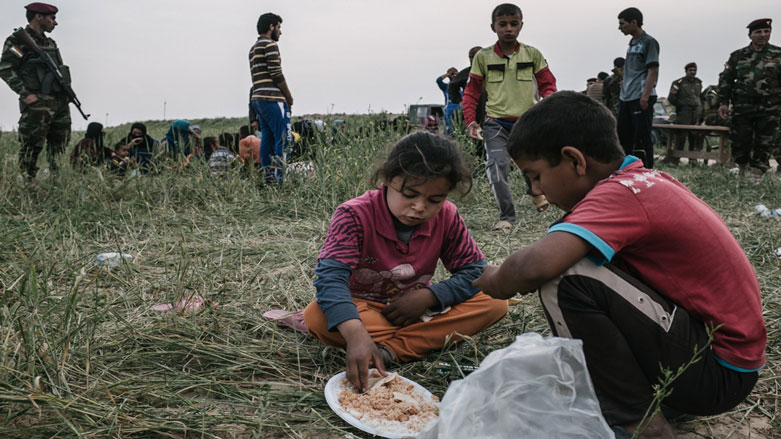KRG: 74 percent of Mosul IDPs flee to Kurdistan

ERBIL, Kurdistan Region (Kurdistan24) – Since the beginning of the Mosul military operation, 68,000 people have fled the city, where 52,000 of them moved to the Kurdistan Region, said the Region’s Joint Crisis Coordination Center (JCC) on Saturday.
In a statement, the JCC mentioned since the launch of the Mosul offensive on Oct. 17, over 68,000 people left the area, the second-largest city in Iraq that remains under the control of the Islamic State (IS).
The report revealed 52,000 of the displaced, which make up 74 percent of the total Internally Displaced Persons (IDPs) from the city, moved to the Kurdistan Region and reside at the Khazir, Hassan Sham, Dibaga, Zlekan and Nargzli camps.
The IDPs receive accommodation, food, and other services with the help of the Iraqi Ministry of Migration and Displacement, UN agencies, Barzani Charity Foundation, Iraqi Red Crescent, and other humanitarian organizations, according to the JCC.
“So far, four camps have been created in the Kurdistan Region for the IDPs, and eight more camps are being constructed,” the JCC stated.
“Once all the camps are fully constructed, the Region can receive 43,000 families, which is about 244,000 people,” the statement continued.
The Kurdistan Regional Government (KRG) mentioned they required IQD 962 million (US $813,000) every month to help the IDPs, but so far the government received no direct financial aid.
The JCC also warned residents of some liberated areas are still suffering from lack of water, medicines, energy, and other needs.
“If they don’t get help in that regard, they will be obliged to leave their areas and move to the Kurdistan Region,” the JCC explained.
The Kurdistan Region is home to over 1.8 million IDPs and refugees who fled from Syria and other parts of Iraq due to the threat of IS attacks.
Editing by Karzan Sulaivany
